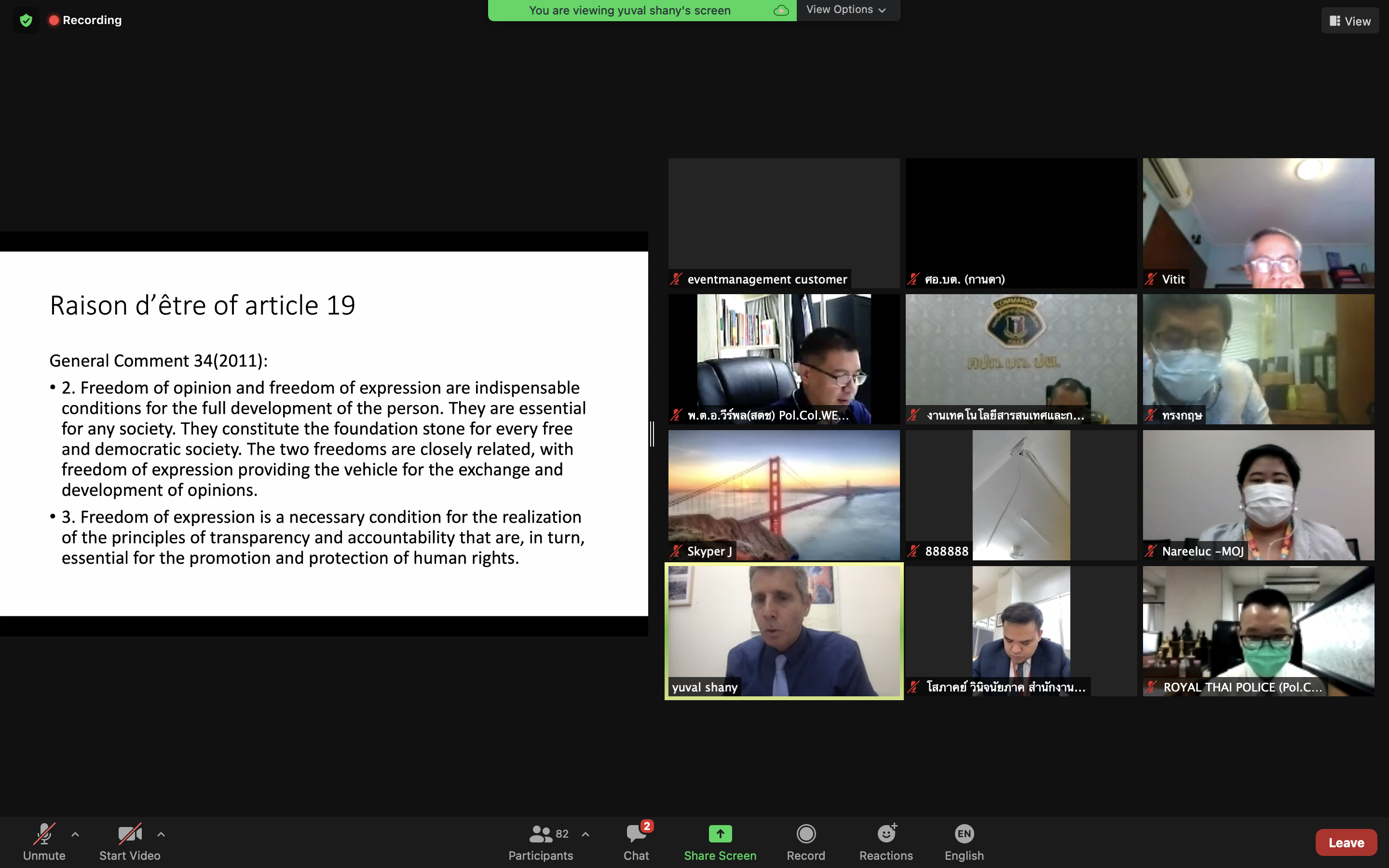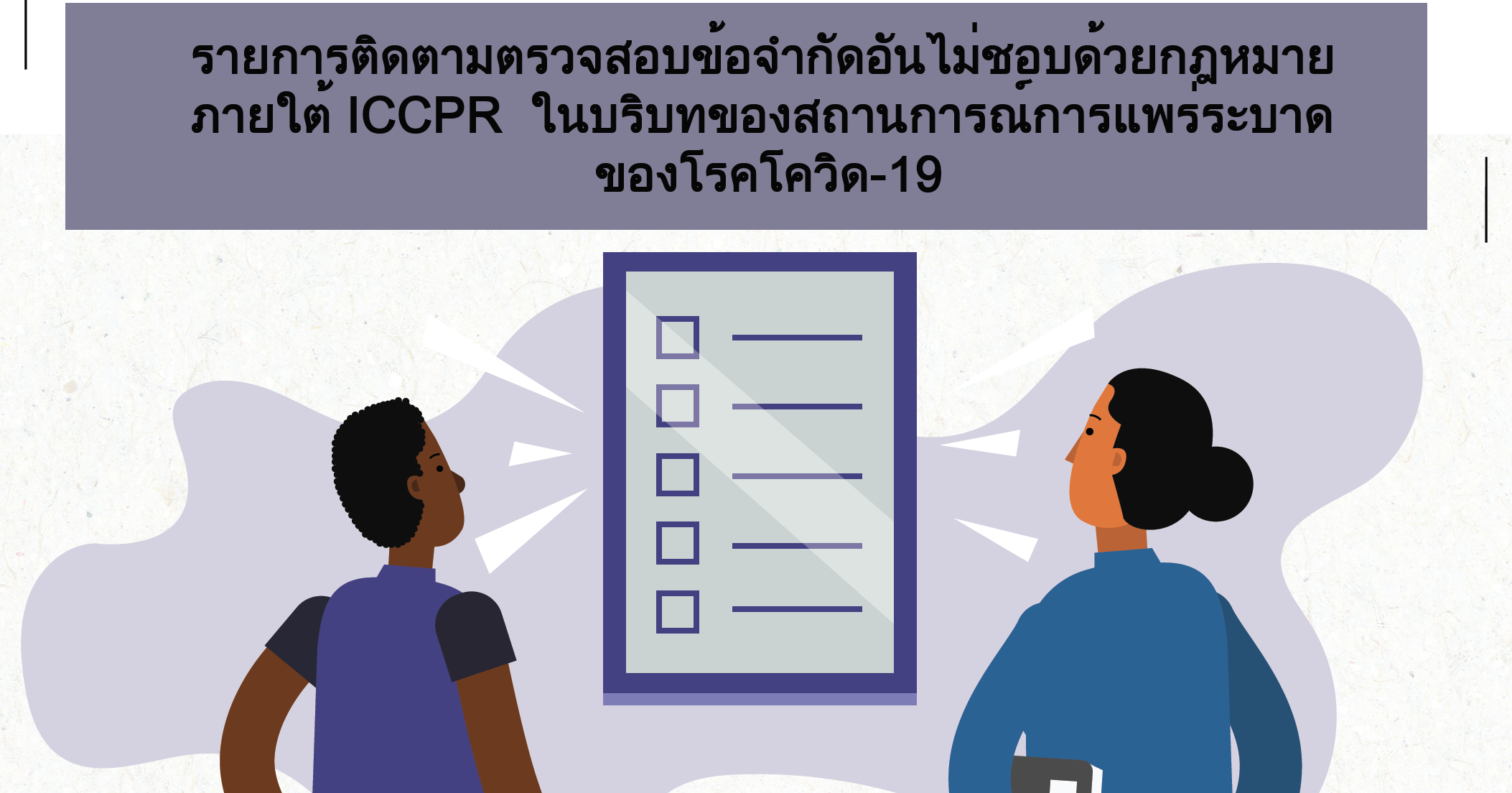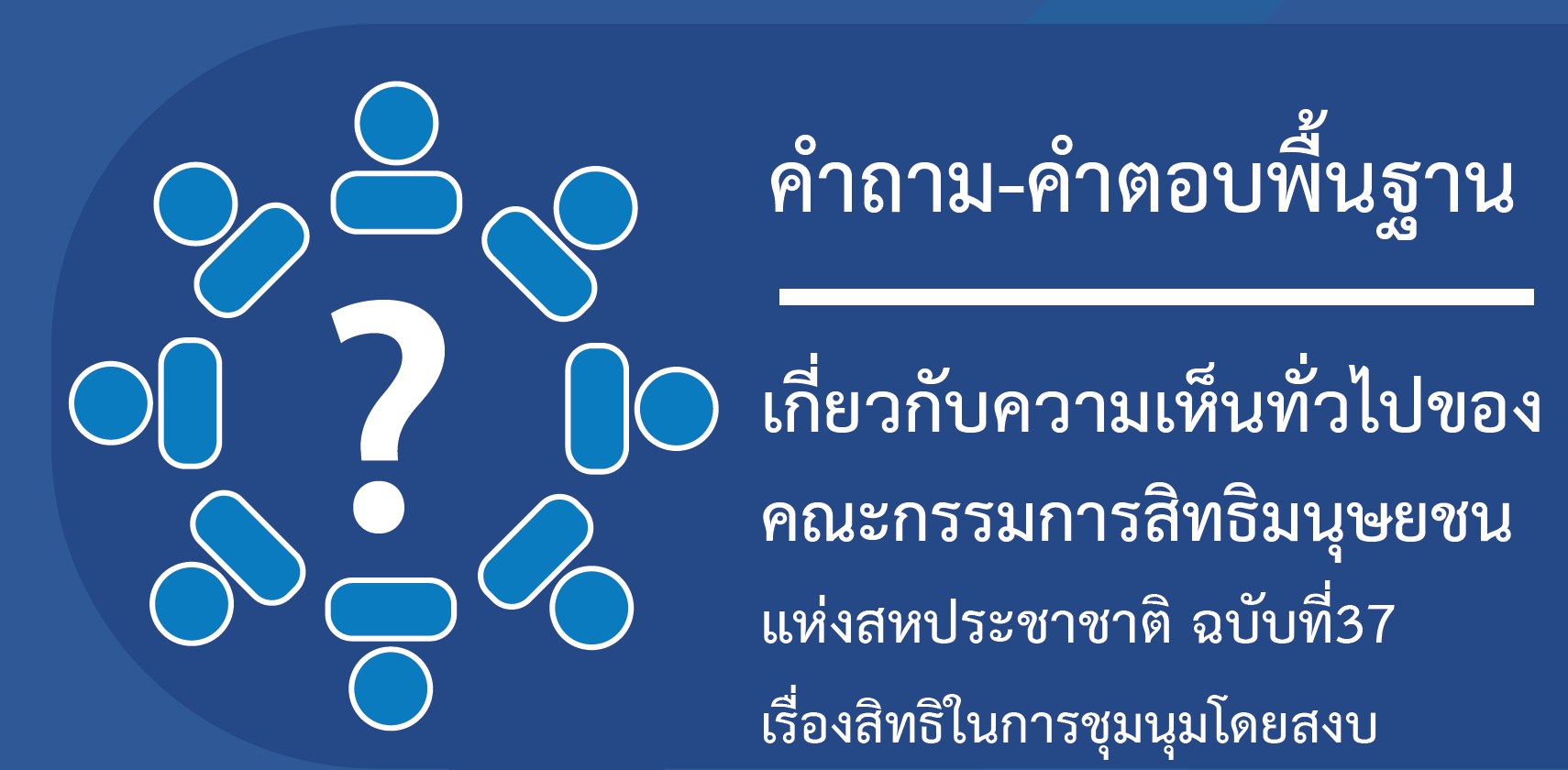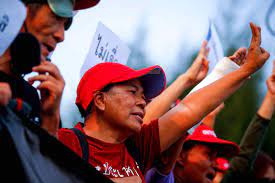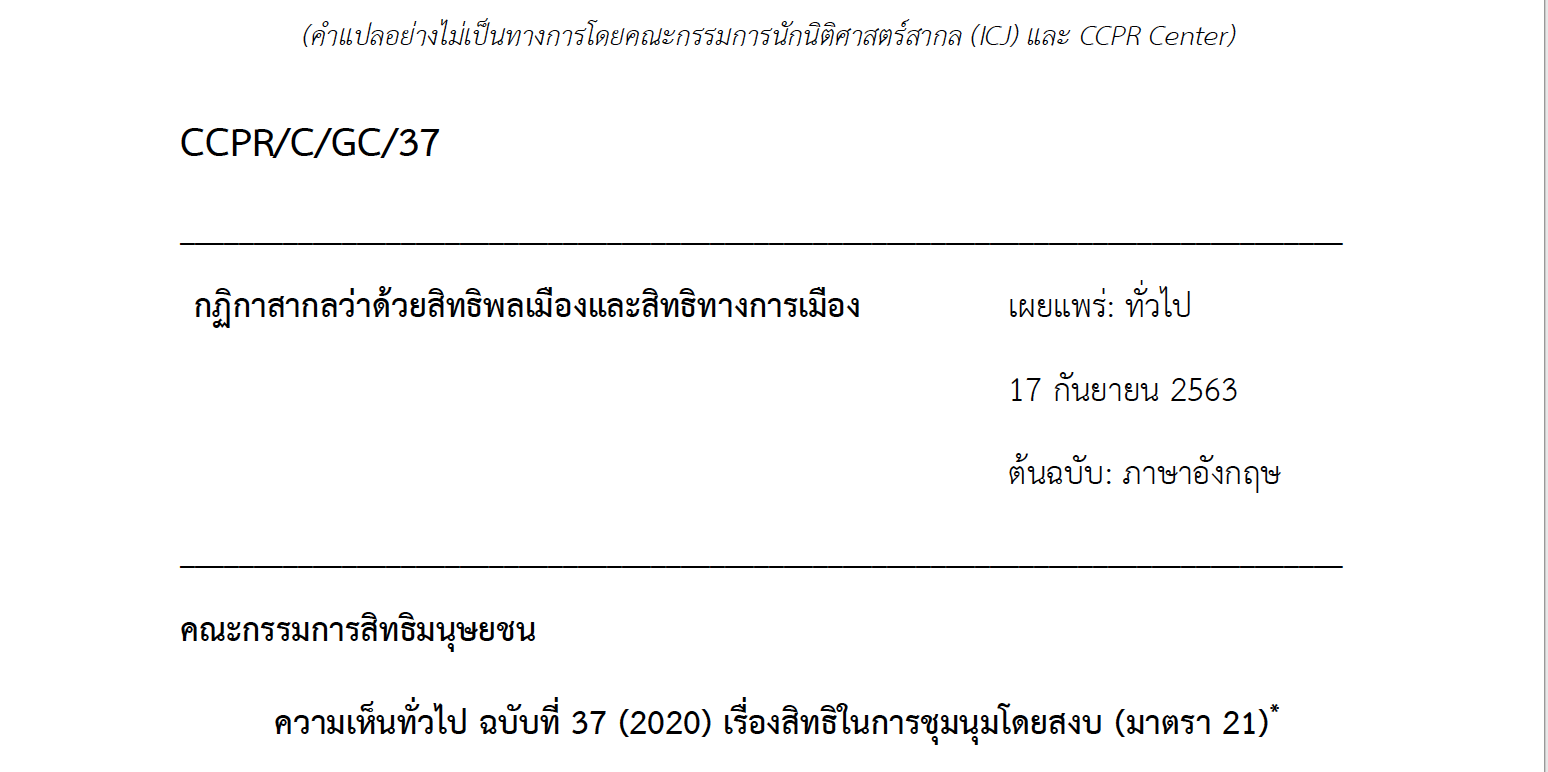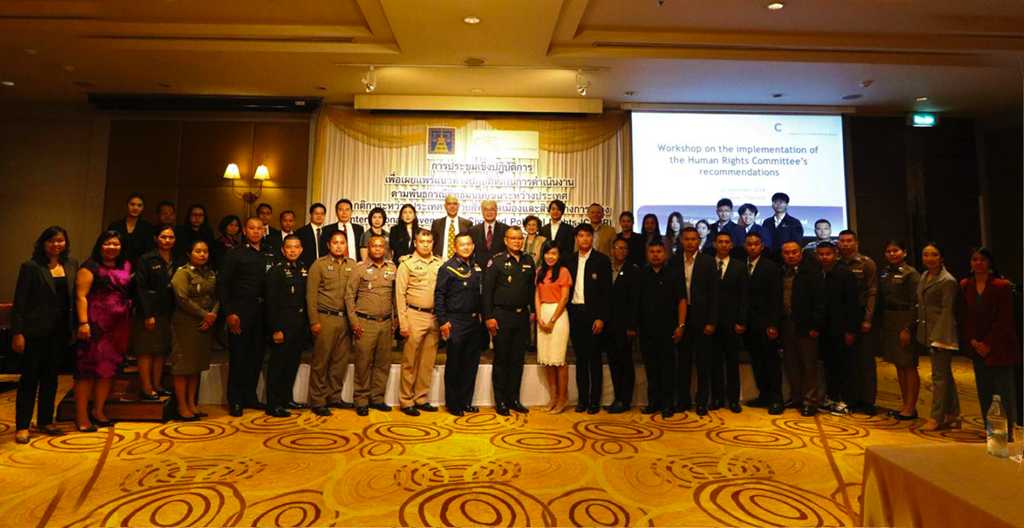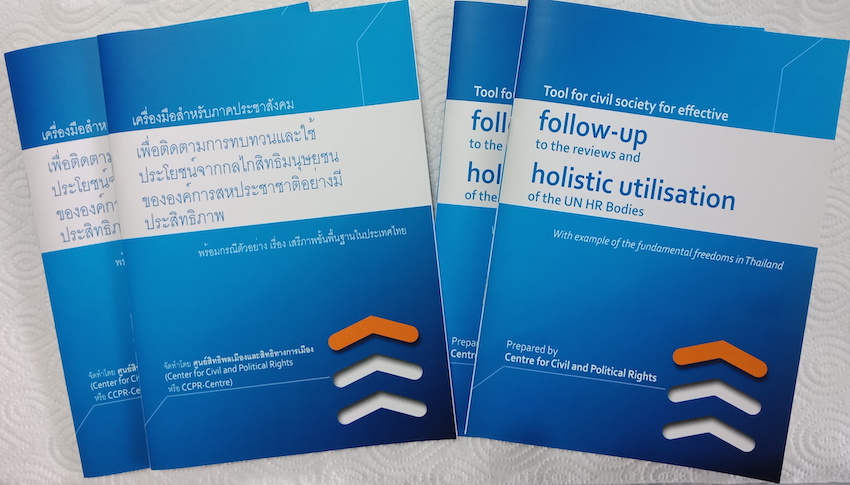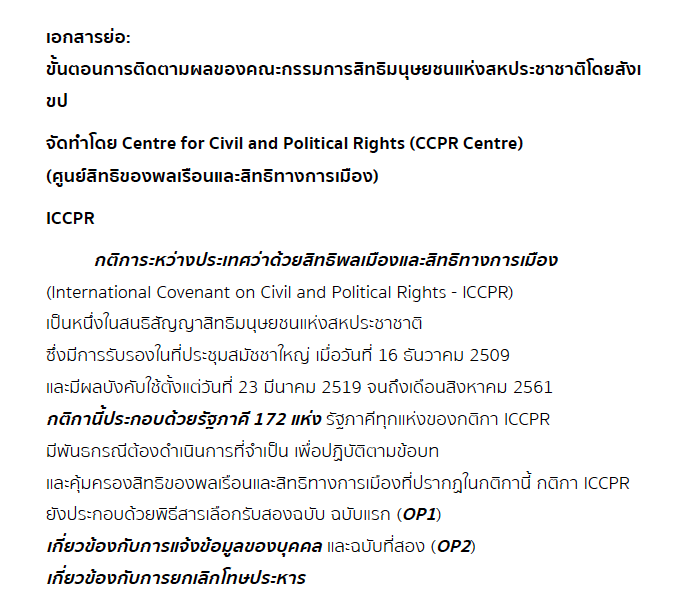Follow-up visit to Thailand
Published on 12 Feb 2018, 05:25 AM
A country visit of Mr. Yuval Shany, Vice-Chair of the HR Committee, to Thailand following up Committee’s Concluding Observations
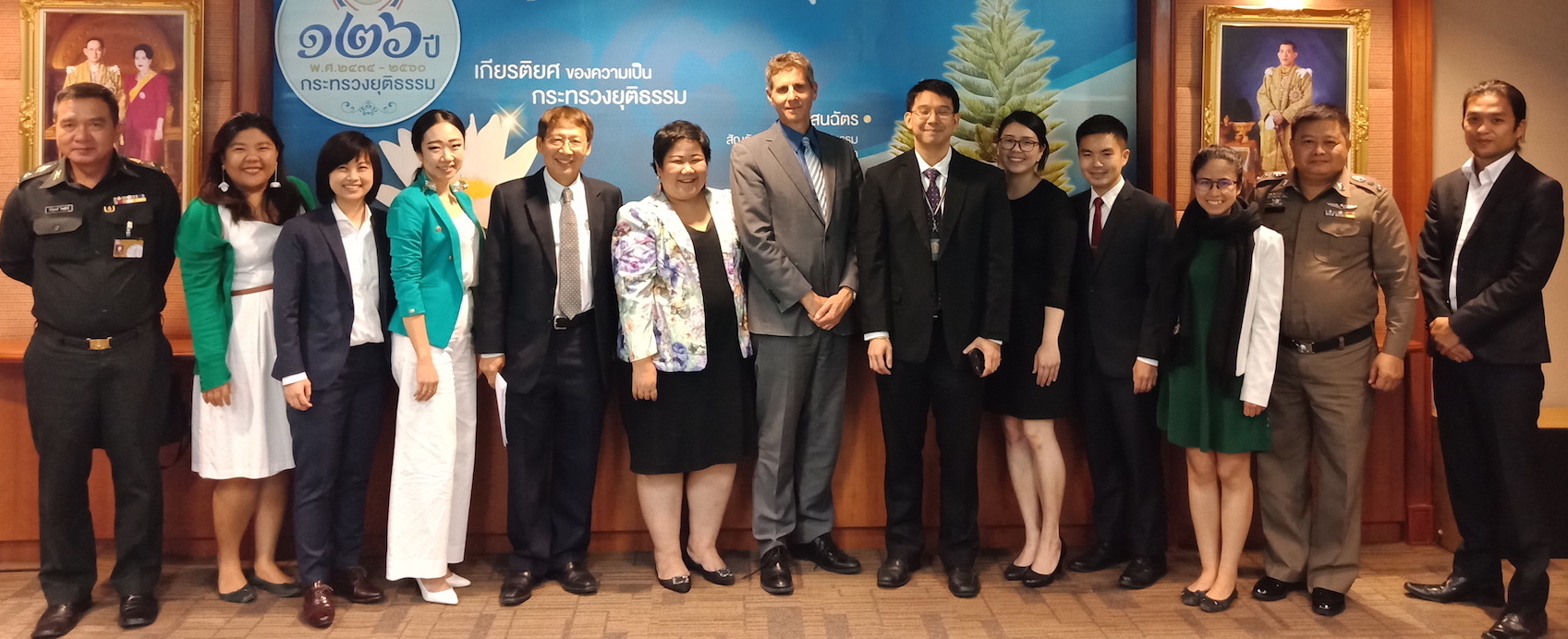 Yuval Shany, Vice-Chair of the UN HR Committee with the representatives of relevant State agencies
Yuval Shany, Vice-Chair of the UN HR Committee with the representatives of relevant State agencies
In the follow-up to the review of Thailand by UN HR Committee in March 2017, CCPR-Centre organised a country visit to Thailand from 31 January to 2 February 2018. The main purpose of the visit was to enhance implementation of HR Committee recommendations, in particular:
- To continue constructive dialogue with relevant State agencies and identify effective steps forward
- To build capacity of key stakeholders in implementing Committee’s recommendations; and
- To assist utilization of Committee’s follow-up procedure by State and civil society actors
For this purpose, meetings were held with various stakeholders, including State actors, civil society as well as OHCHR country team. The visit and related events were organised with support of the Embassies of Australia and Canada in Thailand.
"The visit was an extra-ordinary opportunity to meet high level national decision makers and civil society, at an important moment of political transition, and to continue the momentum for better implementation of ICCPR that was created by the Concluding Observations of the Committee"
- Yuval Shany, Vice-Chair of the UN HR Committee
Workshop with stakeholders co-organised with MoJ Thailand
 Presentation of Mr. Shany at the workshop with stakeholders
Presentation of Mr. Shany at the workshop with stakeholders
As one of the main events during the visit, a half-day workshop was organized in cooperation with the Rights and Liberties Protection Department of the Ministry of Justice (MoJ), Thailand. The workshop was attended by 50 participants from relevant State agencies, including:
- Court of Justice
- Constitutional Court
- Administration Court
- Prime Minister’s Office
- Council of State
- Office of the National Economics and Social Development Board
- Ministry of Justice
- Ministry of Foreign Affairs
- Ministry of Natural Resource and Environment
- Ministry of Digital Economy and Society
- Ministry of Interior
- National Council for Peace and Order
- Ministry of Labour
- Ministry of Public Health
- Ministry of Social Development and Human Society
- Ministry of Education
- Royal Thai Police
- Office of Attorney General
- Office of Election Commission
- Office of the National Anti-Corruption Commission
- Office of National Security Council
as well as representatives of National Human Rights Commission and civil society.
Mr. Shany provided his expertise and in-depth explanation about the provisions of ICCPR, its Optional Protocols as well as the work of the HR Committee including its General Comments. Participants further deepened their knowledge about ICCPR and its implementation in Thailand through Q&A session with Mr. Shany.
Discussion with State agencies
 In-depth discussion on the implementation of ALL HR Committee recommendations to Thailand
In-depth discussion on the implementation of ALL HR Committee recommendations to Thailand
Following the above-mentioned workshop, a round-table discussion was organized by the Rights and Liberties Protection Department of MoJ Thailand, in which Mr. Shany and more than 30 representatives of relevant State agencies, who also attended the workshop, engaged in an in-depth discussion about the implementation of ALL HR Committee recommendations issued in March 2017.
Each recommendation was introduced and explained by Mr. Shany, while participants shared information and their views on the achievements and progress as well as challenges in its implementation. With further feedbacks from Mr. Shany, participants have actively discussed concrete measures needed to fully implement Committee’s recommendations.
One year after the review, various efforts and certain progress were made by Thailand concerning several issues addressed by the HR Committee such as the issue of Death Penalty. However, it was also pointed out that more time is necessary for full implementation of the Committee’s recommendations, including those selected for the Committee’s follow-up procedure dealing with constitutional framework, accountability and conditions of detention.
 Yuval Shany, Vice-Chair of the UN HR Committee with the representatives of relevant State agencies
Yuval Shany, Vice-Chair of the UN HR Committee with the representatives of relevant State agencies




